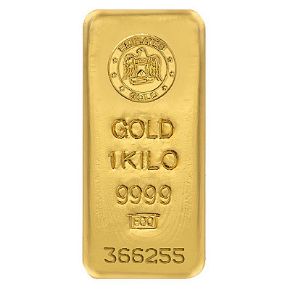
In the evolving world of alternative investments, many holders of cryptocurrency are exploring ways to diversify into tangible assets like gold. While converting profits from Bitcoin, Ethereum, or other digital currencies into physical gold or gold-backed instruments can preserve wealth and hedge against volatility, it often triggers tax obligations that catch investors off guard. This process isn't a simple swap—it's typically treated as a taxable event followed by a new purchase. By grasping the key principles early, you can execute the conversion strategically and minimize unexpected liabilities.
The Taxable Event: Selling Crypto Is the Trigger
The core issue begins with the sale of cryptocurrency. In most jurisdictions, cryptocurrencies are classified as property rather than currency. When you sell crypto to obtain fiat money (like USD) for buying gold, you're realizing capital gains or losses based on the difference between your cost basis—the amount you originally paid, plus any fees—and the sale price.
- Short-term vs. long-term gains: If you've held the crypto for one year or less, gains are taxed at ordinary income rates, which can climb significantly higher than long-term rates. Holding beyond a year qualifies for preferential long-term capital gains treatment, often capping at lower brackets.
- Calculation example: Suppose you bought 1 BTC for $20,000 and sell it at $60,000 after 18 months. Your gain is $40,000. If your tax bracket applies a 15% long-term rate, you'd owe $6,000 in taxes on that gain alone, before considering the gold purchase.
Direct crypto-to-gold exchanges are rare and, if available through specialized platforms, may still be reported as a sale followed by a buy, inheriting the same tax consequences. Avoiding fiat entirely doesn't eliminate the event; the fair market value of the gold received determines the gain.
Reporting and Documentation Essentials
Accurate record-keeping is non-negotiable. Track every transaction: acquisition dates, costs, sale dates, proceeds, and associated fees. Wallets, exchanges, and tax software can generate reports, but verify them manually.
- Forms involved: Gains from crypto sales typically appear on schedules for capital gains and losses. Crypto-specific reporting may require detailing each disposition if thresholds are met.
- Wash sale rules: Unlike stocks, these don't currently apply to crypto, so you could sell at a loss and immediately repurchase similar assets without disallowing the deduction. However, this doesn't help when converting to gold, as it's a different asset class.
If the conversion involves a self-directed IRA or similar retirement account holding crypto, rolling into gold within the same account might defer taxes under qualified rules. But direct personal conversions outside tax-advantaged accounts don't qualify for deferral.
Strategies to Manage the Tax Bite
Planning ahead can soften the impact:
- Timing the sale: Execute in a year when your overall income is lower to stay in a favorable bracket. Harvest losses from other investments to offset crypto gains.
- Partial conversions: Sell portions of your holdings incrementally. This spreads gains over multiple tax years and allows testing market conditions.
- Like-kind considerations: Historically, some argued crypto-to-crypto trades qualified as non-taxable exchanges, but this no longer applies post-2018 reforms. Crypto-to-gold definitely doesn't qualify.
- Gifting or inheritance: Transferring crypto to heirs can step up the basis, avoiding gains for the giver, but this isn't practical for immediate gold conversion.
- Charitable donations: Donating appreciated crypto directly avoids capital gains tax while providing a deduction at fair market value, then using other funds for gold. Or donate gold post-purchase if strategy aligns.
The Gold Side: No Immediate Tax on Purchase, But Future Implications
Buying gold with after-tax proceeds from crypto sales incurs no additional tax at that moment—it's just spending money. However:
- Physical gold vs. ETFs/paper gold: Physical bullion (coins, bars) held personally triggers taxes only upon sale, based on gains from your new cost basis (the post-tax fiat amount paid). Gold ETFs or futures in taxable accounts may generate annual tax events from distributions or marked-to-market rules.
- Storage and sales tax: Some regions impose sales tax on physical gold purchases, adding to costs. Secure storage (vaults, safes) is deductible if business-related but not for personal holdings.
- Future sales: When you eventually sell the gold, calculate gains from the basis established at purchase. Long-term holding again offers better rates.
Common Pitfalls to Avoid
- Underreporting: Exchanges often issue tax forms for high-volume traders; ignoring them invites audits.
- International nuances: If you're in a jurisdiction with crypto-friendly policies, gains might be lower or deferred, but cross-border conversions complicate residency-based taxation.
- Inflation adjustments: Cost basis isn't automatically indexed; track it precisely to avoid overpaying.
- Professional guidance: Tax laws evolve, and individual circumstances—like mining rewards treated as income or staking yields—affect outcomes. Consulting a specialist ensures compliance tailored to your portfolio.
Building a Surprise-Free Path Forward
Converting crypto gains to gold is a smart diversification move, but treating it as two linked steps—a taxable crypto disposition and a tax-neutral gold acquisition—demystifies the process. Start with meticulous records, align sales with your tax situation, and consider structured vehicles if eligible. This approach not only safeguards your wealth transition but positions you to enjoy gold's stability without the sting of unforeseen tax bills. With proactive planning, the shift from digital to precious metal becomes a calculated evolution in your investment journey.
NOTE
This Content is the copyrighted content of EE.GOLD. All rights are reserved. You are welcome to share or use our content only by including direct links to our website. Any other form of reproduction, distribution, or use without proper attribution is strictly prohibited.
This Content is intended solely for educational purposes. The information provided does not constitute financial or investment advice.
Please note that Digital Storage Receipt, Secure Storage Solutions, and Physical Gold Sales are the only services offered by EE.GOLD.
We strictly adhere to government regulations and are firmly against all illegal financial or investment activities globally.
For further inquiries, feel free to contact us through our official channels.










.png)

